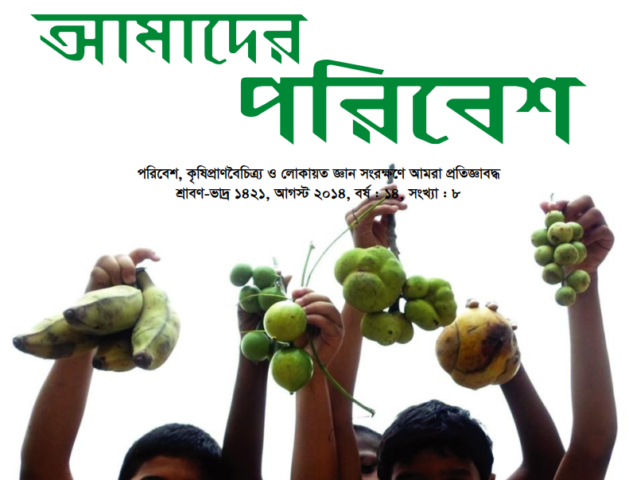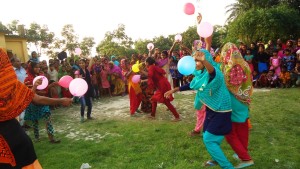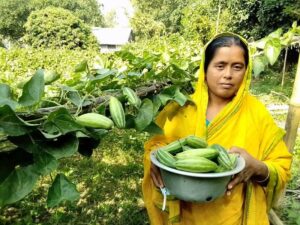Satyaranjan Saha Harirampur, Manikganj
A field day was held recently at Burundi applied rice research plot of Hatipara Union of Manikganj Sadar Upazila organized by BARCIK. During the field day farmers observed 12 mother trials and 69 conserved rice varieties. The applied rice research which was conducted with the objective to select suitable varieties has helped farmers to choose their preferred varieties. Thus, during the field day 31 farmers selected native rice varieties such as Kalijira, Ukni Madhu, Khejurchari, Kaishyabinni, Bargadigha etc. from the which were cultivated in the research plots. Moreover, they select Bhaiyala, Kaishyabinni and Bargadigha rice which are tolerant to flood or monsoon water. In addition to that farmers also discussed and shared information on organic farming with each other during field days.
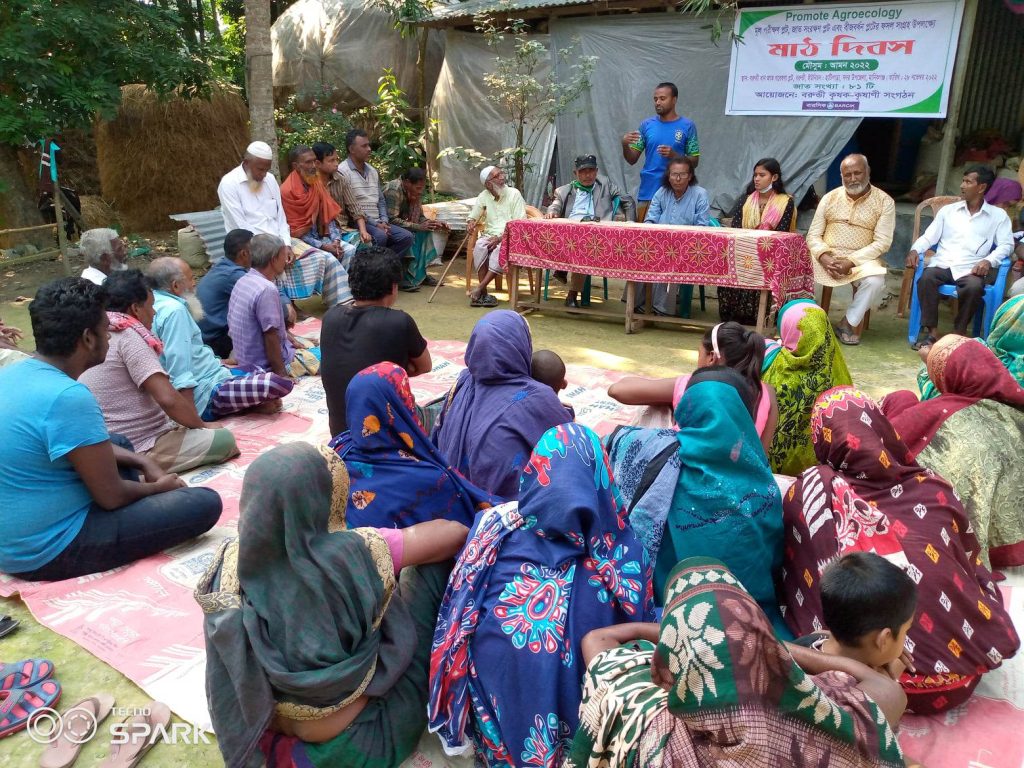
Former Chairman of Hatipara Union Sajjad Hossain Madal Biswas, Farmer Representative of Singair Upazila Sirajul Islam, BARCIK Program Officer Masudar Rahman, Farmer Priya Roy, Farmer & Researcher Baidyanath Sarkar, Farmer & Researcher Shahidul Islam, Farmer Gosai Das Roy, Farmer Gurdas Sarkar and BARCIK officials participated in the discussion arranged to further discuss about the applied research and its outcome with the farmers.
In the discussion, farmers said, ‘Through the Burundi applied rice research program, we are able to select some native rice varieties which are suitable for the area and climate adaptable. He went on saying, ‘We also shared our experience, the benefits of sustainable agriculture with our fellow farmers and learned several things. Today most of us practice environmentally friendly and sustainable agriculture.’
The speakers who participated in the discussion said, ‘Cultivating crops by adopting sustainable agriculture help farmers to yield good crops. They farmed rice, jute, wheat, vegetables, and spices, oilseeds in an organic manner that help them to reduce production cost and harvest good crops.’ The farmers who participated in the event said, ‘We need to cultivate through conservation of agricultural seed diversity. It helps us to protect Bengali culture and heritage. Native rice is what preserves our heritage.’ They went on saying, ‘We cannot produce chira, muri (fried rice), pitha (cakes) when we cultivate high-yielding rice. These rice varieties are not suitable to produce those native foods which have intricate relationship with our culture and heritage.’ They further said, ‘Our culture is embedded with native varieties of rice. In the same way, local rice is the biggest helper for farmers to deal with natural calamities.’ However, during the field day, farmers selected monsoon water tolerant Bhayyala, Kaishyabinni and Bargadigha rice varieties to cope with the change in nature.
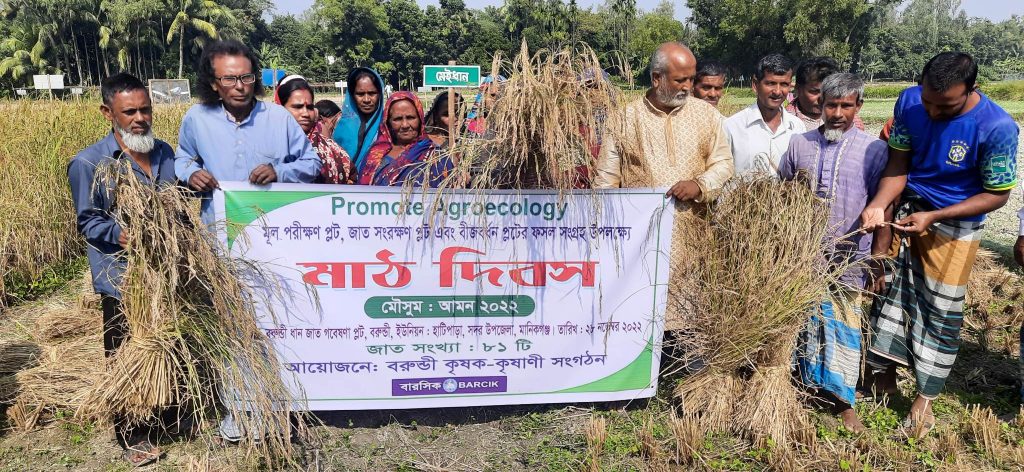
It is to be mentioned that due to the adverse effects of climate change have impacted the crop calendar of farmers and climate induced disaster damaged crops and lands. Due to natural disasters, farmers are often unable to grow crops on time due to the lands get inundated. BARCIK has been encouraging farmers to adopt sustainable agricultural practices and adapt to the changing conditions through different forms of facilitation. It facilitates farmers to conserve seeds and exchange among themselves to counter the crisis.
Translated by Silvanus Lamin

